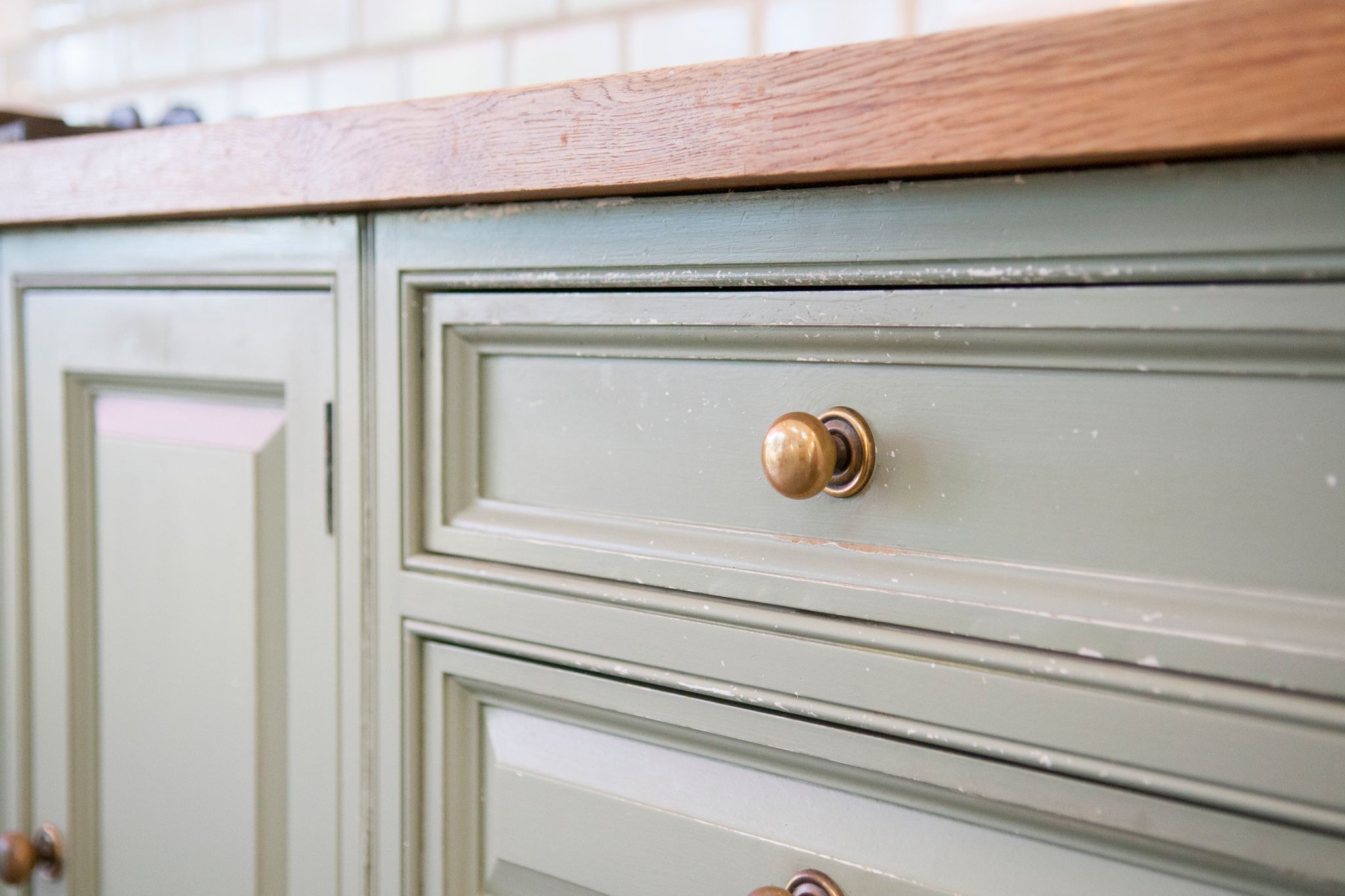Tired or dated-looking kitchen cabinets can be an eyesore in your kitchen — and even be a drawback when you're ready to sell your home. If you're thinking of transforming your cabinets, you have a couple of options: reface them or replace them. Either option makes sense in certain circumstances, but the cost and disruption and your expectations will vary substantially depending on which you choose.
What Are the Factors in Refacing a Kitchen Cabinet?
With refacing, you'll cover the exposed frames with a thin veneer of real wood or plastic laminate. To match or complement the new veneer, you replace doors and drawer fronts. Then you add new hinges, knobs, pulls, and molding to complete the transformation.
To match or complement the new veneer, you replace doors and drawer fronts. Then you add new hinges, knobs, pulls, and molding to complete the transformation.
What Are the Pros and Cons of Refacing?
Kitchen cabinet refacing pros:
- Costs about half as much as replacing cabinets.
- Takes less time (a week or less!) and money.
- It's less hassle than tearing out cabinets.
- You can still use your kitchen while refacing.
- It’s a green kitchen remodeling solution because you're not adding to the landfill.
Kitchen cabinet refacing cons (there aren't many):
- Refacing won't fix a bad kitchen design.
- You might be tempted to spend more on exotic veneer and hardware (saving you less).
What Are Your Refacing Options?
Your choices for the finished look of your cabinets are extensive. Veneers are available in a wide variety of colors, patterns, textures, and grains, which you can mix or match to get a relatively low-cost kitchen facelift.
- Rigid thermofoil doors, which feature a durable plastic coating over fiberboard, are an affordable alternative to wood or laminate doors.
- Plastic laminates come in hundreds of colors and patterns, are durable and moisture-resistant, and are reasonably priced. You can pick matching or contrasting laminates for your doors and drawer fronts.
- Real wood veneers include many standard species, such as oak, cherry, and maple, and you can also choose from an array of stain colors. Wood veneers are the most expensive option, and you have to carefully seal the wood to protect against moisture.
Further customize and update the look of your cabinets with new kitchen cabinet hardware.
What Does Refacing Cost?
A professional cabinet refacing for a typical 10-foot-by-12-foot kitchen starts at around $80 to $100 per linear foot for laminate materials only. Expect to pay the same, $80 to $100 per linear foot, for wood veneer materials. Hardwood will run about $200 to $500 per linear foot without installation.
Finishing the project with new hardware (pulls, knobs, hinges) runs $1 to $100 per piece, with hinges costing about $1 to $25 per piece.
What Does Replacing Cost?
In comparison, completely replacing old kitchen cabinets with new ones costs, and excluding installation, costs about:
- $187 to $279 per unit for stock cabinets
- $304 to $452 per unit for semi-custom cabinets
- $526 to $784 per unit for custom cabinets
How Do I Know If My Cabinets Are Good for Refacing?
Refacing is feasible if your existing cabinet boxes are structurally sound and in good condition. Cabinets with water damage, warping, and broken frames are poor candidates. Particleboard cabinetry sometimes requires fasteners, in addition to adhesives, to ensure the veneer is secure.
How Are They Installed?
A professional installer will come to your house to measure your cabinets and determine the amount of veneer required, the correct sizes and quantities for door and drawer fronts, and the amount of hardware needed. Newly ordered doors and drawer fronts may take a couple of weeks or longer for delivery.
When all the materials are in hand, your installer removes old cabinet door and drawer fronts, and prepares the surface of the cabinet boxes by washing the exteriors with a degreaser and lightly sanding the finish. Any significant flaws in the surface are repaired or filled to ensure a smooth, secure fit for the new veneer.
The installer applies veneer to the cabinet faces and any exposed cabinet ends, then mounts the new doors, drawer fronts, and hardware. The process typically takes two to four days.
If you've been wanting a cabinet refresh, you have choices based on your budget, time frame, tolerance for disruption, and the level of change you want. Either way, your updated cabinets will put a fresh face on your kitchen.
Related:
